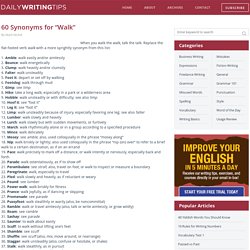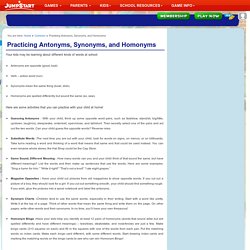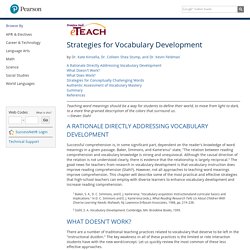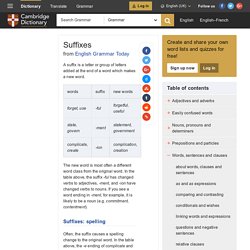

40 Useful Words and Phrases for Top-Notch Essays. 17.7KGoogle +202 1702 2322 25 August, 2014 The secret to a successful essay doesn’t just lie in the clever things you talk about and the way you structure your points.

To be truly brilliant, an essay needs to utilise the right language. You could make a great point, but if it’s not intelligently articulated, you almost needn’t have bothered. Developing the language skills to build an argument and to write persuasively is crucial if you’re to write outstanding essays every time. General explaining Let’s start by looking at language for general explanations of complex points. 1. Usage: “In order to” can be used to introduce an explanation for the purpose of an argument.
Example: “In order to understand X, we need first to understand Y.” 2. Usage: Use “in other words” when you want to express something in a different way (more simply), to make it easier to understand, or to emphasise or expand on a point. Example: “Frogs are amphibians. 3. Example: “Plants rely on photosynthesis. Vocabulaire. Spelling & Typing Game - Kelk_1000_151-200. Large English Vocabulary Word Lists. Confectionery - Dictionary Definition. Tous gagnants à la fin. Réviser le vocabulaire en classe. Apprentissage unilingue /Mots en contexte.
60 Synonyms for “Walk” By Mark Nichol When you walk the walk, talk the talk: Replace the flat-footed verb walk with a more sprightly synonym from this list: 1.

Amble: walk easily and/or aimlessly 2. Bounce: walk energetically 3. Clump: walk heavily and/or clumsily 4. Subscribe to Receive our Articles and Exercises via Email You will improve your English in only 5 minutes per day, guaranteed! 1 Response to “60 Synonyms for “Walk”” Practicing Antonyms, Synonyms, and Homonyms - English Lesson Plans for Kids. Your kids may be learning about different kinds of words at school: Antonyms are opposite (good, bad).Verb – action word (run)Synonyms mean the same thing (bowl, dish).Homonyms are spelled differently but sound the same (so, sew).

Here are some activities that you can practice with your child at home! Guessing Antonyms : With your child, think up some opposite word pairs, such as fast/slow, stand/sit, big/little, up/down, laugh/cry, sleep/wake, enter/exit, open/close, and tall/short. Then secretly select one of the pairs and act out the two words. Can your child guess the opposite words? TIP. Example of a word's ID card. Méthode #1. Pearson Prentice Hall: eTeach: Strategies for Vocabulary Development. By Dr.

Kate Kinsella, Dr. Colleen Shea Stump, and Dr. Kevin Feldman A Rationale Directly Addressing Vocabulary Development What Doesn't Work? What Does Work? Teaching word meanings should be a way for students to define their world, to move from light to dark, to a more fine-grained description of the colors that surround us. Successful comprehension is, in some significant part, dependent on the reader's knowledge of word meanings in a given passage. 1 Baker, S. 2 Stahl, S. There are a number of traditional teaching practices related to vocabulary that deserve to be left in the "instructional dustbin.
" Look them up. The common shortcoming in all of these less effective approaches is the lack of active student involvement in connecting the new concept/meaning to their existing knowledge base. The following section will explore some practical strategies that secondary teachers can employ to increase the integration, repetition, and meaningful use of new vocabulary. Méthode #2. Suffixes - English Grammar Today. A suffix is a letter or group of letters added at the end of a word which makes a new word.

The new word is most often a different word class from the original word. In the table above, the suffix -ful has changed verbs to adjectives, -ment, and -ion have changed verbs to nouns. If you see a word ending in -ment, for example, it is likely to be a noun (e.g. commitment, contentment). Often, the suffix causes a spelling change to the original word. In the table above, the -e ending of complicate and create disappears when the -ion suffix is added.